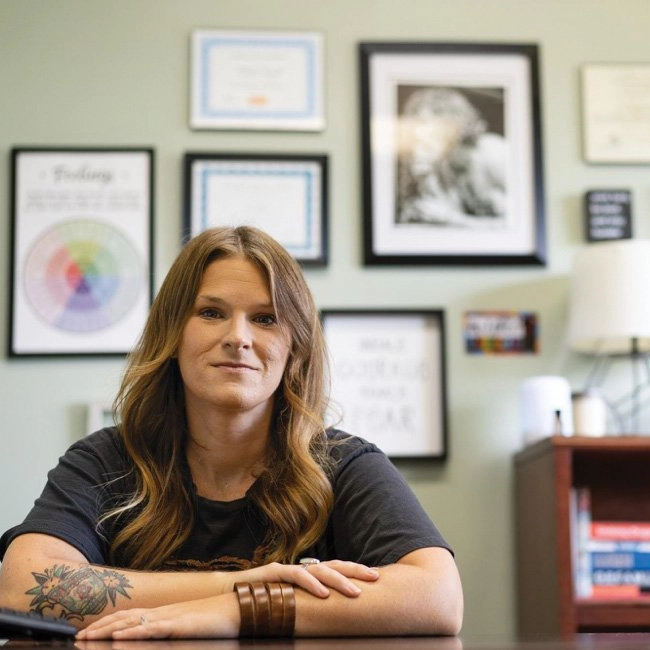Recovery looks different for each person. Just ask Devin Lyall, founding executive director of Wilkes Recovery Revolution, Inc., a National Council member organization in Wilkesboro, N.C., that’s providing individuals in rural communities with pathways to care. She shares her insights about her agency, their harm reduction work and meeting people where they want to be.
What kind of work does your organization do?
Wilkes Recovery Revolution, Inc., is a nationally accredited recovery community organization that is operated through the lens of lived experience. Our organization has worked over the years to create a recovery ecosystem where individuals are met at various intersections of recovery and ensure that individuals do not fall through the cracks while attempting to navigate systems of care.
How are you putting more people on the path to recovery?
We offer eight unique programs, including Phases Transitional Housing, R3 Recovery Center, Wilkes Harm Reduction Collective, Hope Warriors, Project HOW (Healing Our Workforce), Fresh Start Farm, Wilkes Fresh Mobile Market and Revolution Thrift Store. By creating a recovery ecosystem and offering a continuum of care, we believe we have created a space for individuals to choose their own self-directed paths of recovery, encouraging more engagement and better outcomes for everyone.
How would you describe your community impact?
We get to witness miracles daily, but one of the most impactful things we hear in this work is when an overdose kit we provided saved a life. Nothing is more rewarding than knowing someone is living to see another day because of the services we provide. We have also seen individuals move through various stages in their recovery, going from chaotic use where they feel disconnected from everything to being valued, supported members of their community. We get to witness people transition from their lowest, most vulnerable moments to become thriving individuals. Many of the people we support go on to share their lived experiences through volunteer work or paid positions within our agency.
What innovative things are you doing in the harm reduction space?
We recently launched our mobile recovery health unit, which offers our harm reduction services to rural areas of our county, ensuring our services are accessible for those who may have transportation barriers. Our mobile recovery health unit offers syringe access, safer use supplies, wound care supplies, overdose kits, drug checking, hygiene supplies, safer sex supplies and harm reduction safer use counseling. Individuals are also able to visit pop-up sites to access onsite peer support services to navigate intricate systems and community resources.
What’s something exciting you’re currently working on?
We recently received funding from the National Council to pilot Wilkes County’s first post-overdose response team. This team will work with our community’s safety partners to provide support to people who have experienced an overdose. By incorporating the voices of lived experience during these pivotal moments, we create a safe space for people to choose paths that best fit their needs and allow them to live lives of health and wellness.
What would people be surprised to learn about the work you’re doing?
I am the founding executive director of our agency and an individual in recovery from chaotic IV drug use. All our staff and a majority of our board of directors are individuals who are directly impacted by substance use disorder, drug use and mental health challenges.
What’s one of your biggest lessons learned?
I have learned the most important work happens when we meet individuals where they need us, not where we think they should be. That can be difficult in our field because, at times, we like to think we know what is best for people, based on our own lived experience, education or understanding. But recovery is non-linear and looks different for each person. Each time we show up, we must have an understanding that the answer might be a little different every time we ask the question.
It’s important to meet people where they are, but sometimes we must go a step further and listen to individuals, so that we can also try to meet them where they want to be with our hand ready to lift them up. I’ll leave you with a quote someone shared with me recently. Robin Williams said it in the movie, Patch Adams, “You treat a disease, you win, you lose. You treat a person, I guarantee you, you’ll win, no matter what the outcome.”
The National Council’s membership consists of health care organizations and management entities across the U.S. that offer supports to millions of adults, children and families living with mental health and substance use challenges. Learn how to become a National Council member today!




